The restoring and rebuilding of Israel's farms, following the terrorist attacks of October 7, 2023, will not only benefit local growers. They will also have a positive impact for growers around the world. "So many of the strategic challenges we face now in Israel, especially after the attacks on October 7, many countries and farmers are facing globally. This includes challenges around water, the lack of or high expenses of labour, climate change and sustainability and the gap between what farmers do and how to properly apply the agrotech that comes up. These are the challenges that are faced by everyone," says Danielle Abraham, Executive Director of Volcani International Partnerships and Regrow Israel.
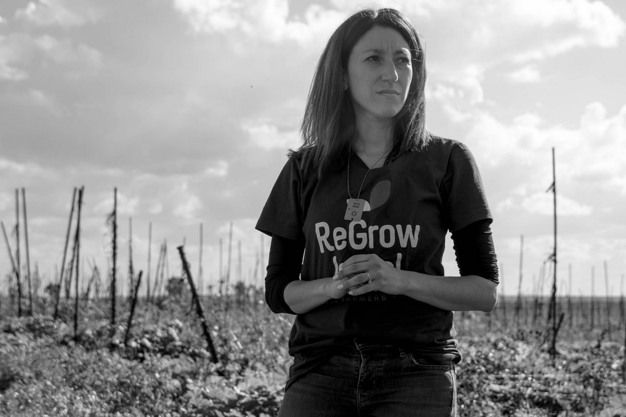
Danielle Abraham, Executive Director of Volcani International Partnerships and ReGrow Israel.
Her NGO plays an instrumental role to assist growers in Israel to recover. It raised over $17 million to help get the farmers back on their feet. This includes critical assistance to replace infrastructure and supplement government funding to growers.
"The extent of the damage in the South of Israel as they entered from Gaza was much greater than anticipated. It is largely an untold story. When Hamas came, they came to intentionally, strategically and systematically destroy Israel's agriculture. They burnt and stole tractors, killed livestock, blew up greenhouses and destroyed irrigation water lines. In the region of 40,000 hectares under management were affected."
"Different kinds of Kibbutzim that are more socialised and Moshavim that are private are affected. Both communities were targeted. The Kibbutzim traditionally focus more on field crops, and the Moshavim spearhead the more intensive agriculture in greenhouses. The damage and impact when Hamas came, it destroyed agriculture with at least $25 million damage to agricultural equipment, tractors etc. There was a lot more damage to infrastructure, greenhouses, chicken coops etc. About 10% of the soil is damaged too, with primarily Israeli tanks that came through when the war started. Hamas blew up irrigation, they opened tanks and caused flooding of the land. Growers lost so many thousands of workers and their ability to plant etc. ," explains Abraham.
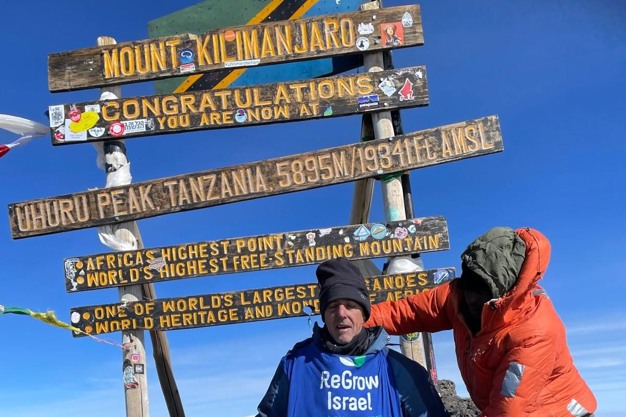 Yoram Kapulnik, ReGrow Israel Chair recently summiting Mount Kilimanjaro, Tanzania to show support for farmers.
Yoram Kapulnik, ReGrow Israel Chair recently summiting Mount Kilimanjaro, Tanzania to show support for farmers.
The key for Abraham and her team is how to place the grower back at the centre of development, through the well-known tried and trusted Israeli Golden Triangle model. It also presents them with the opportunity to re-establish agriculture with new, modern farming technologies. "The immediate needs were so big. Our first area of focus is to help farmers replace damaged equipment, tractors, irrigation and parts of greenhouses etc. Their insurance is void due to the war. We raised funds from the Jewish Federation of North America to help every farmer across the Western Negev who had damage. We also worked on addressing the lack of labour. The growers are keen to attract the Thai workers back. However, they also want assistance in introducing more automation to reduce dependence on labour and strengthen efficiency and long term resilience."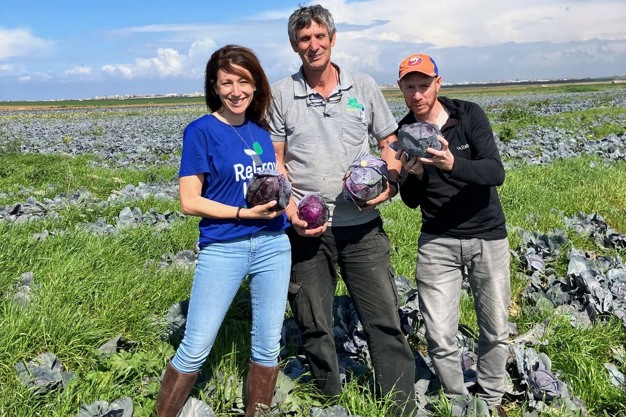 Taking international visitors to farm in Israel is key for Danielle. Kibbutz Alumim farmer Eran Braverman is in the middle.
Taking international visitors to farm in Israel is key for Danielle. Kibbutz Alumim farmer Eran Braverman is in the middle.
She says in the first few months after the war, a big shift took place to ensure enough fresh produce supply to the local market to meet the food security needs in Israel. "In the first two months the needs increased by a massive 60,000 tons. The area around the western Negev is critical with 70% of vegetables, 20% of the fruit being grown and 6.5% of the diary produced. There was a lot to contend with. This pushed farmers and communities to decide whether to rehabilitate the land or to rebuild, they were also asking what was there for the next generation."
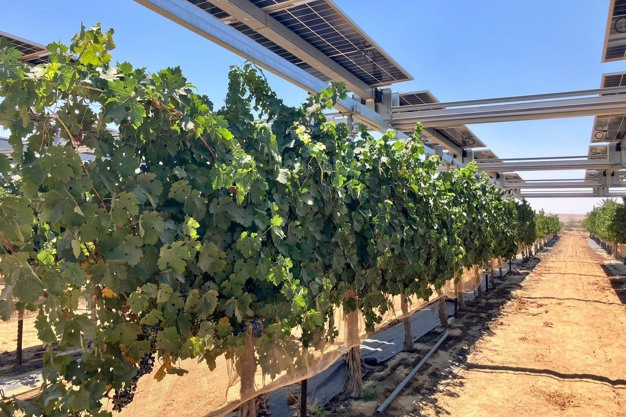
Abrahams says key questions remain as they redesign Israel's farms: "How do we adopt cutting edge technologies? How to create a mechanism and model to close the gap between tech and what's happening in the field. Our model is relevant to countries across the board. We combine the knowledge, training and finance, to see how to close the gap. We are keen to ensure Israel's growers can succeed and then share the lessons with growers around the world."
Israeli help to Africa and other countries
She says their focus in specifically on helping African countries in today's times with food security and agriculture as the key to economic growth. "The key lessons from our Golden Triangle is to always put the farmer in the centre of all efforts. The farmer must be supported by applied agricultural scientists and a high ratio of extension officers to solve every challenge that emerges."
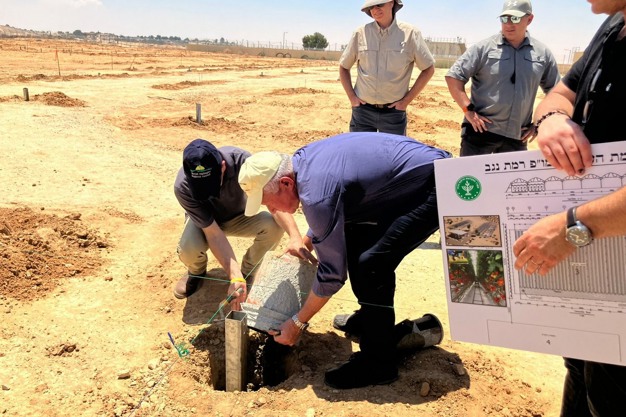
Site for a high-tech climate resilient greenhouse.
"We have extension officers with scientist's problem-solving for farmers alongside a solid extension service. This approach will change African agriculture as well as around the world. If government's can just get these basics right, it is about providing the basic problem-solving support from professionals while mixing staple with high value crops. Our model is the place to start. The investment into extension services is key," is Abraham's advice that she shares with government leaders around the world. She is also invited around the world to speak about the experiences and lessons in Israel.
For more information:
Danielle Abraham
Regrow Israel
Volcani International Partnerships
Email: [email protected]
www.vipartnerships.org/leadership










